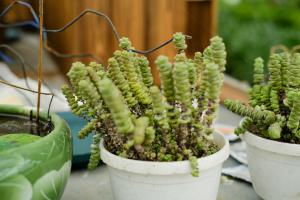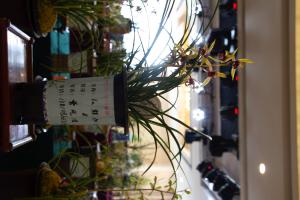Is a Snake Plant Toxic to Cats?
Many pet owners love to decorate their homes with plants, but they also have to be concerned about their furry friends' safety. Cats are especially susceptible to ingesting poisonous plants, and as a result, owners must be cautious when selecting new greenery. One commonly asked question is, "Is a snake plant toxic to cats?"
The Answer
The answer is, unfortunately, yes. Snake plants, also known as Sansevierias, are toxic to cats, dogs, and humans. They contain saponins, which can cause vomiting, diarrhea, and drooling, among other symptoms, when ingested.
What Are the Symptoms?
If a cat ingests a snake plant, they may experience a range of symptoms. These can include:
Vomiting
Diarrhea
Drooling or foaming at the mouth
Lethargy or weakness
Loss of appetite
Difficulty breathing
Pawing at the mouth
What Should You Do If Your Cat Eats a Snake Plant?
If you suspect that your cat has ingested a snake plant, it's crucial to act quickly. The first step is to call your veterinarian. They may recommend bringing your cat in for an exam, or they may give you instructions on what to do at home.
Some home remedies that may help include:
Offering your cat small amounts of water to help ease any vomiting or diarrhea
Giving your cat activated charcoal, which can help absorb toxins
Monitoring your cat's symptoms and providing supportive care as needed (such as keeping them warm and comfortable)
It's important to remember that cats can be very sensitive to toxins, so even if your cat only ingested a small amount, it's still best to seek veterinary care.
What Are Some Safe Alternatives?
If you're looking for cat-friendly plants to decorate your home, there are several safe options. Some examples include:
Spider plants
Money plants
Areca palms
Boston ferns
Bamboo
These plants are not toxic to cats and can make a beautiful addition to your home without putting your furry friend in danger.
The Bottom Line
While snake plants may be popular and low-maintenance, they are not a safe choice for homes with cats. Because they are toxic, even the smallest amount can cause serious harm to our feline friends. If you do have a snake plant in your house, it's best to keep it out of reach of your pets, and to opt for a safer plant option instead.

 how many times do yo...
how many times do yo... how many planted tre...
how many planted tre... how many pine trees ...
how many pine trees ... how many pecan trees...
how many pecan trees... how many plants comp...
how many plants comp... how many plants can ...
how many plants can ... how many plants and ...
how many plants and ... how many pepper plan...
how many pepper plan...































